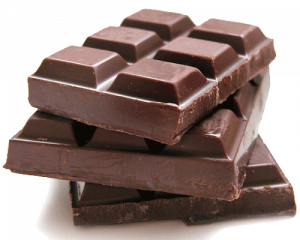It annoys me when a winemaker's website wants to know my date of birth before it will let me in.
If you put in a date less than 18 years ago it won't let you proceed, but you can enter a birth year back to 1900.
Instead of saying ''wow! you are 114 years old'' it just silently lets you in.
Some of these sites don't even sell wine online. What is the point I wonder.
Other sites may have a box to tick to say you are of legal drinking age in your country, which is easier, and one sensible one I came across asked for this only when it came to buying wine online.
Yet other sites appear to have no need for such a question.
If you can get your computer or phone to remember you on the site, it will not ask you next time, but somehow mine often forgets.
According to John Barker, of New Zealand Wine Growers, until last year there was no legal requirement for age verification on wineries' websites.
''In December a new regulation under the Sale & Supply of Alcohol Act 2013 introduced a set of 'reasonable procedures' for the purposes of complying with the Act that requires the holder of an off-licence to take reasonable steps to verify that purchasers are of legal age.
"These included a requirement to verify age by ticking an on-screen box upon entry on to the website and again at purchase,'' he says.
This will come into force as licences are renewed, so expect more demands for your date of birth.
• The problem of keeping opened wine fresh plagues most wine lovers who don't want to finish a bottle at one sitting.
Once you have opened a bottle, the wine starts on the downward slope towards oxidation and eventually vinegar, but some go quicker than others. However, there are ways to slow the decline.
Things that spoil wine or hasten the decline are exposure to air and sunlight or bright light, and heat.
However, cold temperatures will slow the process.
Wine left open will oxidise in contact with the air and become stale, but different wines do it at different rates, and some young wines, particularly good quality reds and well-balanced whites, can actually taste more integrated the day after they have been opened.
On the other hand, some older wines oxidise rapidly in contact with air and just will not last.
Some very old wines even oxidise between pouring and finishing the glass.
When I'm tasting wines for the ODT column, I always retaste them the following day to check which have developed, indicating they will benefit from cellaring, and which have dulled, which usually indicates a lesser quality that probably should be drunk within a year.
Often we continue to enjoy a glass or two of the best over the next few days, and all we do is screw the caps back on and put them in a cool dark place.
The good ones may integrate a little more and only begin to taste stale after four or five days.
We used to use a vacuum pump with special stoppers but found it mostly ineffective as it seemed to extract the volatile aromas along with some of the air.
We have also tried a gadget that tops the bottle with nitrogen but it can work out to be expensive and is not worth either the effort or expense.
However, when we are opening a bottle from the cellar to have with a meal we pour half of it into a 375ml bottle, filling it to the top, replacing the cap and storing it in the fridge until we want to finish it.
Then we drink the rest of the bottle.
It also means we don't overindulge - two glasses each is quite sufficient.
We have found that even older wines will keep well for several days by this method as there is little contact with air.
We allow reds to come back to room temperature before drinking. Swirl the wine in the glass with your hand cupped around it if you are in a hurry.
If you do this regularly you may end up with several half-bottles of wine and not remember what they are!
The one style of wine that is best re-closed with a special stopper that clips on to the bottle and seals it is sparkling wine.
The dissolved carbon dioxide sitting on the surface of the wine keeps it fresh and the stopper keeps the gas in.
It probably won't have quite the same lively effervescence the following day, but the flavour should still be good.












